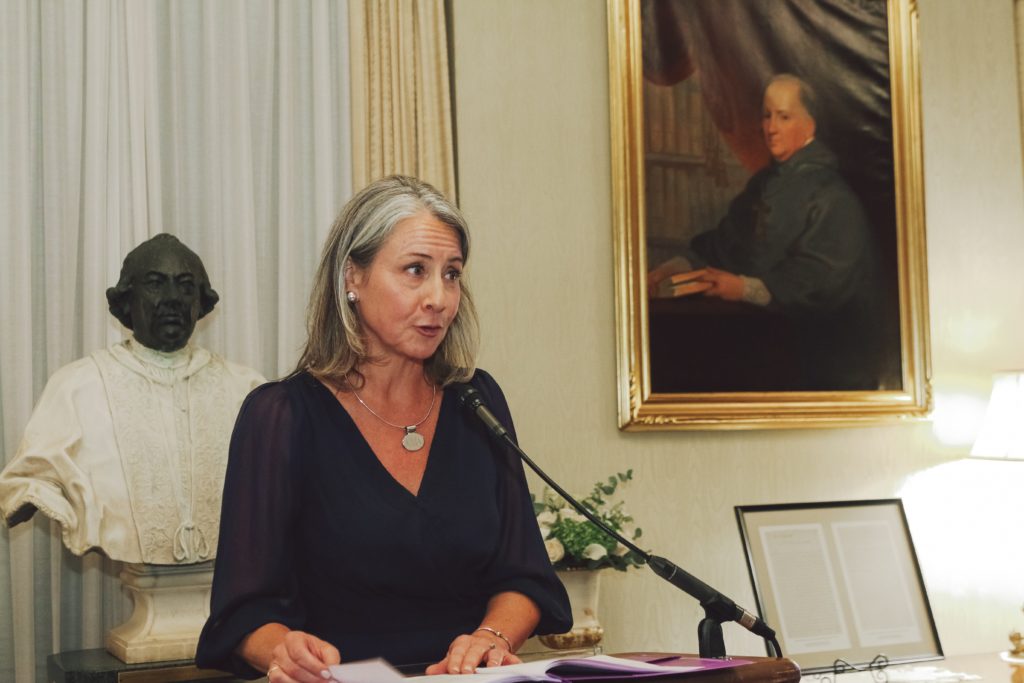In the third week of November, three executions by lethal injection took place in the U.S. in just two days and a fourth execution was called off after failed attempts happened close to the expiration of the prisoner's death warrant.
Catholic leaders spoke out against the Nov. 16 executions in Texas and Arizona as well as the next day's execution in Oklahoma and the halted one in Alabama.
In a 24-hour period, all four death penalty cases had last-minute appeals to the Supreme Court that were denied.
Without mincing words, Sister Helen Prejean, a Sister of St. Joseph and longtime death penalty opponent, tweeted: "The U.S. Supreme Court is now functionally a rubber stamp for executions. Stays and injunctions issued by lower courts are routinely lifted without full briefing and without explanation from the justices, no matter how egregious the underlying legal issues."
The court's fourth rejected plea, in an unsigned order Nov. 17, failed to block the execution of Oklahoma inmate Richard Fairchild, who had asked the justices to put his execution on hold to give him time to appeal a state court's ruling on his mental competency.
Shortly after the court's morning ruling, Fairchild, who turned 63 that day, was put to death for the 1993 murder of his girlfriend's 3-year-old son, Adam Broomhall.
Fairchild's attorneys said their client, who had been abused as a child, was psychotic but also remorseful for his actions. The state argued that Fairchild's request was a delay tactic.
After his execution, Archbishop Paul S. Coakley of Oklahoma City said: "Today the state of Oklahoma executed Richard Fairchild -- the fifth Oklahoma inmate executed in 2022. This archaic practice has been consistently imposed in the name of justice or the protection of society at large, but all it does is deprive the condemned of their innate human dignity."
He also said in a statement that the death penalty "only serves to perpetuate the cycle of violence without healing the wounds of grief and loss." He asked for prayers for Fairchild, Broomhall, their families and the corrections staff involved in carrying out the execution.
Just before Fairchild's execution, the Catholic Mobilizing Network tweeted: "We hold in prayer all those like him who suffer from mental illness, brain damage and childhood trauma. The death penalty truly targets the most vulnerable among us."
The previous day, the Supreme Court rejected requests for stays of execution from Arizona inmate Murray Hooper and Texas inmate Stephen Barbee.
Hooper, 76, was convicted in 1982 for his role in a murder-for-hire involving multiple co-defendants. He was the only one of the defendants executed for the crime. His appeal to the Supreme Court claimed prosecutors withheld evidence in his case.
An Oct. 27 statement from the Arizona bishops, issued by the Arizona Catholic Conference, said it was "troubling that after a respite of nearly eight years, the state of Arizona has begun to conduct executions and has now scheduled another one for Murray Hooper. Sadly, it is expected that even more executions are likely to follow in the near future."
The bishops said they "remain steadfast" in their opposition to the death penalty, especially in this modern era, saying their opposition is "rooted in the teaching of the Catholic Church that every person is created in the image and likeness of God."
They also said it was "critical to never forget the horrible crimes committed and the terrible loss experienced by the families of victims," saying that their concern is for victims of heinous crimes and that they "support the provision of compassionate and professional assistance to the families and loved ones of victims."
"We fervently pray for their healing and that their needs are never forgotten," they added.
His execution took an extended period of time because his severe joint deterioration prevented his arms from straightening or lying flat.
Hooper was executed the same day that Texas put to death Barbee, a 55-year-old inmate sentenced for killing his pregnant girlfriend and her 7-year-old son in 2005.
Just hours before his execution, his case was battled in court over the state's handling of his religious rights because the Texas Department of Criminal Justice lacked a written policy on what spiritual advisers could do in the execution chamber clarifying a Supreme Court ruling on this earlier this year.
The federal appellate court and the U.S. Supreme Court ruled in favor of the state allowing the execution to move forward.
Barbee's lawyers also had moved to stop his execution, saying his disabilities would result in extreme pain if he is strapped to a gurney for lethal injection, which was denied.
In Alabama Nov. 17, the execution of 57-year-old Kenneth Smith, convicted in a 1988 murder-for-hire killing of a preacher's wife, was postponed just before the midnight deadline because prison officials had difficulty finding a vein to inject the lethal injection.
His appeal for a stay, that went to the Supreme Court and was denied, claimed that complications at recent executions put him at an intolerable risk of cruel and unusual punishment.
His case now goes back to court where the state will seek a new execution date.
Before his execution was halted, Sister Prejean tweeted that the Supreme Court has said: "The death penalty is supposed to be reserved for the 'worst of the worst.'"
She said 11 of the 12 jurors at Smith's trial "believed he was NOT the worst of the worst and voted for life. They were overridden by the judge," but the Supreme Court is "allowing the execution to happen."
When the execution was called off, Catholic Mobilizing Network tweeted: "Praise God, the execution of #KennethSmith has been called off. Kenneth is alive, and he will not be executed tonight! This is the second scheduled execution in a row that Alabama has attempted, yet been unsuccessful in performing a lethal injection."

